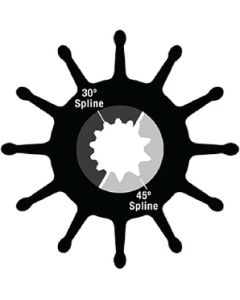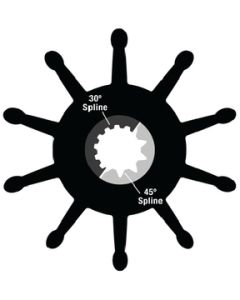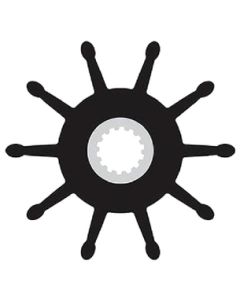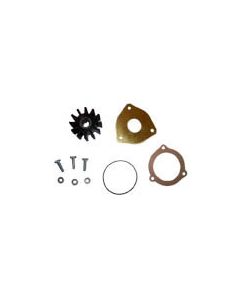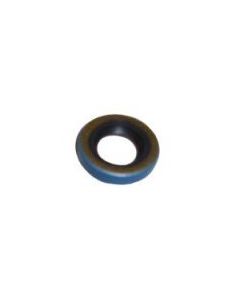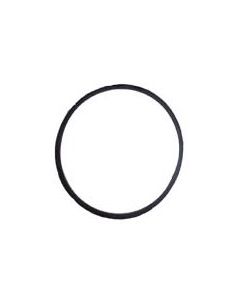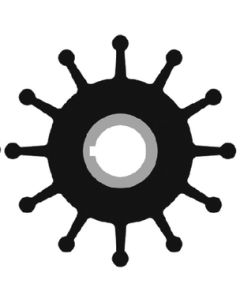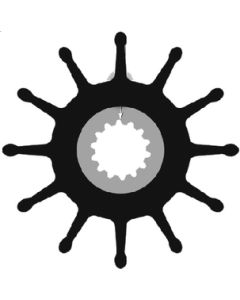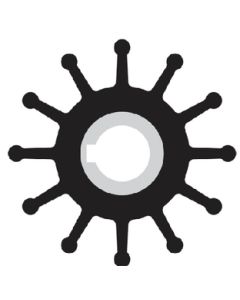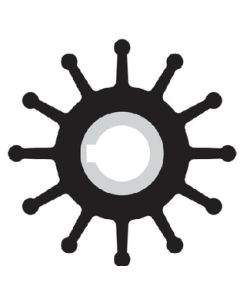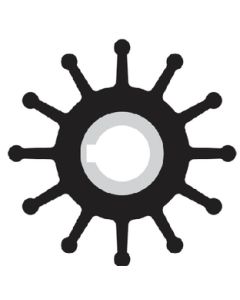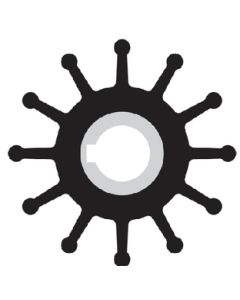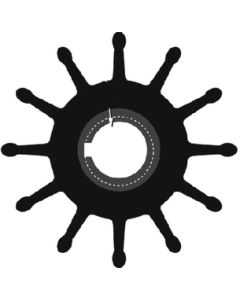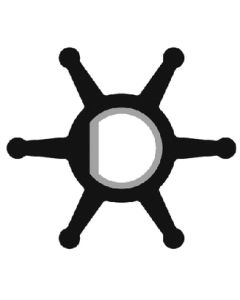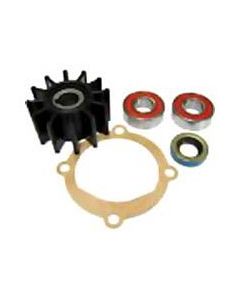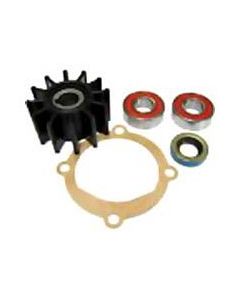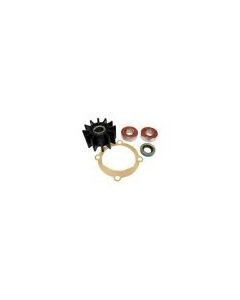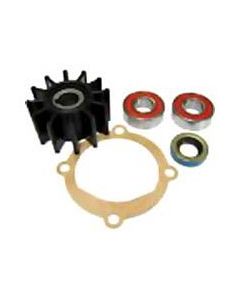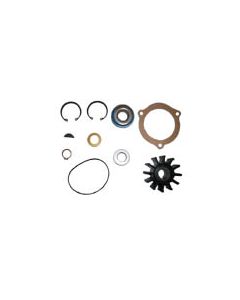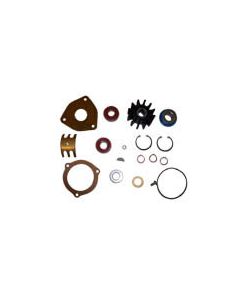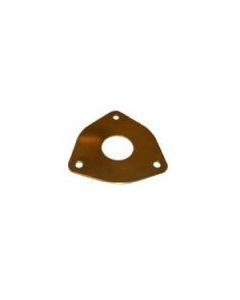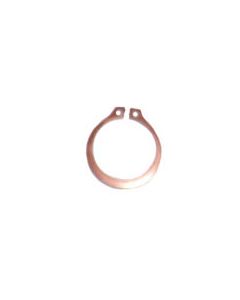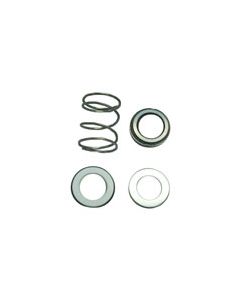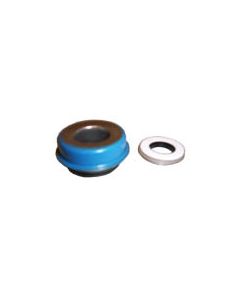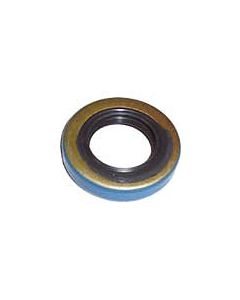Impellers
MARINE IMPELLERS
An impeller is a rotating component of a centrifugal pump, usually made of iron, steel, bronze, brass, aluminum or plastic, which transfers energy from the motor that drives the pump to the fluid being pumped by accelerating the fluid outwards from the center of rotation. An impeller is usually a short cylinder with an open inlet, called an eye, to accept incoming fluid, vanes to push the fluid radially, and a splined, keyed or threaded bore to accept a drive-shaft.
Impellers mechanically pull water into a jet-boat engine or jet-pump. The raw water side of the cooling system is almost certain to have a rubber-impeller-type pump.
An impeller can suck toward itself sand, seaweed, barnacles, pebbles, small pilchards and debris. Anything floating in the water can get sucked into an impeller causing wear, damage or failure. All this debris can stop the water flow and the impeller could also shed blades. The flow of water could also be stopped by plastic bags, other debris, and an air lock resulting from heeling under sail or a closed seacock.
To prevent damage to the impeller many professionals recommend checking the exhaust for debris or spray every time you start the engine. It is wise to inspect the boat’s water pump impeller for signs of aging including rust and cracks.
Over time the rubber impeller can dry and crack. A marine shop can easily examine these impellers on outboard motors and out drives. A small piece of rubber broken off of an impeller can cause major overheating problems. When checking periodically your impeller these are some things you should take into consideration:
Sand could be an important problem especially in shallow water. Sometimes the impeller can pull sand into the jet-pump. The abrasion from sand will wear away at the impeller, changing its shape and performance.
Rocks and debris can cause catastrophic failure, shattering or badly damaging the impeller blades. Other hard debris can get sucked into the impeller, such as shells or even fishing hardware. Anything really hard can cause immediate and total failure. The effect of sand, use, friction, and debris getting sucked into the jet-pump is accumulative and sooner or later the impeller will stop working.
Water provides some important functions for jet-pumps. The viscosity of water keeps the blades from spinning too fast and it cools the impeller. The parts of the impeller assembly that tolerate the most friction are the bearings. Bearings are specially engineered connections that reduce friction and vibration in touching (bearing) parts. Impeller bearings rely on cooling from the water. If the pump runs dry, it can overheat the bearing or bearings, quickly causing catastrophic failure.
Many professionals recommend using a neoprene impeller for engine cooling, and for fresh or salt water transfer duties. Neoprene is the most commonly used material and is suitable for use where only small amounts of oil or diesel fuel are present. A nitrile impeller is recommended by many boaters for bilge pumping and for transfer duties where the water is heavily contaminated by oil or diesel. It is a good idea to replace all impellers at least once every year, or sooner, depending on the engine duty. Changing the impeller could be part of your annual spring maintenance or winterizing. It is a cheap part that can keep the engine working properly. If the engine stops working and you don’t react quickly, you may have to buy a new outboard.
HELPFUL HINTS:
• When replacing an impeller do not use screwdrivers because they may damage the face of the pump body. This damage could cause leaks that could be hazardous in enclosed spaces.
• It is a good idea to always carry spare impellers on board in case of emergency. Even if you are careful and vigilant, the raw-water pump can fail and not necessarily at an opportune time.
• Be sure to always grease new impellers. This provides additional protection to the impeller during initial prime.
An impeller is a rotating component of a centrifugal pump, usually made of iron, steel, bronze, brass, aluminum or plastic, which transfers energy from the motor that drives the pump to the fluid being pumped by accelerating the fluid outwards from the center of rotation. An impeller is usually a short cylinder with an open inlet, called an eye, to accept incoming fluid, vanes to push the fluid radially, and a splined, keyed or threaded bore to accept a drive-shaft.
Impellers mechanically pull water into a jet-boat engine or jet-pump. The raw water side of the cooling system is almost certain to have a rubber-impeller-type pump.
An impeller can suck toward itself sand, seaweed, barnacles, pebbles, small pilchards and debris. Anything floating in the water can get sucked into an impeller causing wear, damage or failure. All this debris can stop the water flow and the impeller could also shed blades. The flow of water could also be stopped by plastic bags, other debris, and an air lock resulting from heeling under sail or a closed seacock.
To prevent damage to the impeller many professionals recommend checking the exhaust for debris or spray every time you start the engine. It is wise to inspect the boat’s water pump impeller for signs of aging including rust and cracks.
Over time the rubber impeller can dry and crack. A marine shop can easily examine these impellers on outboard motors and out drives. A small piece of rubber broken off of an impeller can cause major overheating problems. When checking periodically your impeller these are some things you should take into consideration:
Sand could be an important problem especially in shallow water. Sometimes the impeller can pull sand into the jet-pump. The abrasion from sand will wear away at the impeller, changing its shape and performance.
Rocks and debris can cause catastrophic failure, shattering or badly damaging the impeller blades. Other hard debris can get sucked into the impeller, such as shells or even fishing hardware. Anything really hard can cause immediate and total failure. The effect of sand, use, friction, and debris getting sucked into the jet-pump is accumulative and sooner or later the impeller will stop working.
Water provides some important functions for jet-pumps. The viscosity of water keeps the blades from spinning too fast and it cools the impeller. The parts of the impeller assembly that tolerate the most friction are the bearings. Bearings are specially engineered connections that reduce friction and vibration in touching (bearing) parts. Impeller bearings rely on cooling from the water. If the pump runs dry, it can overheat the bearing or bearings, quickly causing catastrophic failure.
Many professionals recommend using a neoprene impeller for engine cooling, and for fresh or salt water transfer duties. Neoprene is the most commonly used material and is suitable for use where only small amounts of oil or diesel fuel are present. A nitrile impeller is recommended by many boaters for bilge pumping and for transfer duties where the water is heavily contaminated by oil or diesel. It is a good idea to replace all impellers at least once every year, or sooner, depending on the engine duty. Changing the impeller could be part of your annual spring maintenance or winterizing. It is a cheap part that can keep the engine working properly. If the engine stops working and you don’t react quickly, you may have to buy a new outboard.
HELPFUL HINTS:
• When replacing an impeller do not use screwdrivers because they may damage the face of the pump body. This damage could cause leaks that could be hazardous in enclosed spaces.
• It is a good idea to always carry spare impellers on board in case of emergency. Even if you are careful and vigilant, the raw-water pump can fail and not necessarily at an opportune time.
• Be sure to always grease new impellers. This provides additional protection to the impeller during initial prime.

